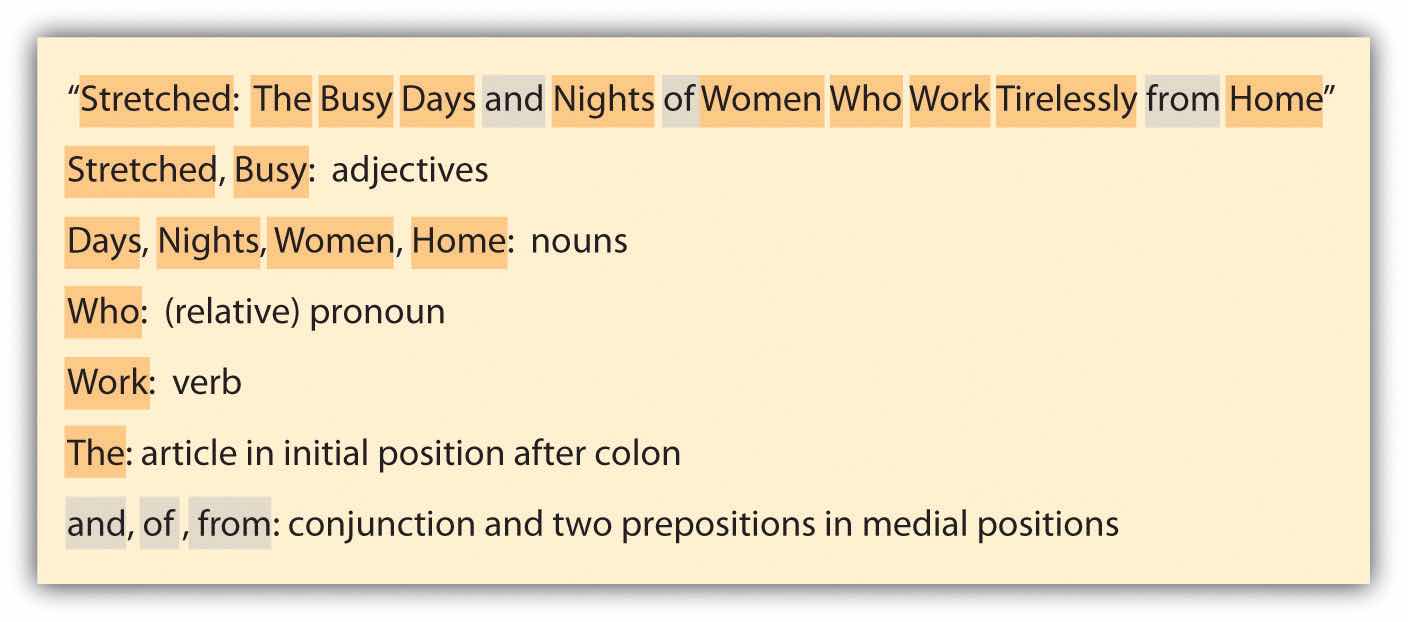With the advent of new social networkingA method of meeting and talking with people online. structures, such as text messaging, IM (instant messaging), and Facebook, the reliance on traditional standard capital letters has been relaxed in informal settings. This laxity got its start as a means of expediency since the use of capital letters required additional efforts for people using only a couple of fingers or thumbs for typing words. Rather quickly, the use of abbreviations and lack of capital letters became fashionable—almost like a status symbol indicating a person’s social networking awareness. Despite this now common exclusion of capital letters in personal situations, capital letters are still the proper choice in professional and academic settings. If you are someone who writes far more often on a cell phone than on a computer, you are likely to benefit from a brush up on capitalization rules for those occasions when you are composing more official documents.
Some words are capitalized whenever they are used. Proper nouns, trade names, the pronoun “I,” and “O” when used as an interjection make up this category of words.
Proper nounsA word that names a specific, not a general, person, place, or thing (e.g., Clyde Smith, Eisenhower Middle School, Wednesday). include names of specific persons, places, or things. Words that are typically common nounsA word that names a general, not a specific, person, place, or thing (e.g., queen, house, plate). can become proper nouns when they are used as part of a name.
Trade names include names of specific companies and products.
The letters “I” and “O” each represent words that are always capitalized.
Capitalizing the first word in a sentence appears fairly straightforward at first glance. But there are actually some variations you should keep in mind.
| Capitalize the first word of a standard, simple sentence. | We usually start mowing our lawn in March. |
| Capitalize the first word in a sentence of dialogue. | Beth said, “Please help me lift this box.” |
| Do not capitalize the first word of dialogue that continues after the speaker’s name when the sentence has not yet ended. | “Please,” Beth said, “help me lift this box.” |
| Capitalize the first word in a quoted sentence when it is written in dialogue formation. | Ellery Jones noted, “Online education is here to stay.” |
| Do not capitalize the first word in quoted text when it is imbedded in an existing sentence. | Ellery Jones agrees that online education is “here to stay.” |
| Do not capitalize the first word of a sentence that follows a colon, unless the colon introduces two or more sentences. | Sports carry a lot of weight at our school: the football program is the only program that is funded at 100 percent each year. |
| Capitalize stand-alone sentences within parentheses. | Order your binders ahead of time. (You’ll need one for each course.) |
| Do not capitalize sentences within parentheses if they are included as part of another sentence. | Order your binders ahead of time (one for each course). |
| Capitalize the first word of continuation questions. | Are you attending on the eighth? The ninth? The tenth? |
| Do not capitalize the first letter of a noncapitalized proper noun even if it falls at the beginning of a sentence. (Generally try not to place such words at the beginning of sentences.) |
iPhones took the market by storm. OR The iPhone took the market by storm. |
| Defer to the capitalization used in poetry or in other sources. (In some cases, the poem will not capitalize the first word of each line.) |
I think that I shall never see A poem lovely as a tree A tree whose hungry mouth is prest Against the earth’s sweet flowing breast… from “Trees” by Joyce Kilmer |
In titles and subtitles, capitalize key words, including first words, last words, nouns, verbs, pronouns, adverbs, and adjectives. Do not capitalize articles, conjunctions, or prepositions unless they are in the initial position (either at the beginning of the entire title or at the beginning of the phrase after a colon if there is one). Look at the Figure 19.1 and consider why each word is capitalized or not.
Figure 19.1

Capitalize abbreviations of proper nouns, such as the following:
If the items in a bulleted list are sentences, capitalize the first word of each item, as follows:
Semester exam schedule:
If the items are not sentences and are not continuations of a sentence stem, capitalize the first word of each item, as follows:
Semester exam schedule:
If the items are continuations of a sentence stem, do not capitalize the first word unless it happens to be a proper noun.
Semester exams will be held on
Avoid the unnecessary use of capital letters. As a rule, you can avoid capitalization errors by adhering to the rules for capitalization. But the following “don’t capitalize” suggestions can help you to avoid making some common mistakes.
Capitalize names of holidays and months but not seasons:
winter, spring, summer, fall
Do not capitalize words such as “mom” and “dad” when they are used to talk about someone as opposed to when used as a name:
Capitalize: “What did you say, Mom?”
Don’t capitalize: “My mom and dad came with me.”
Do not capitalize words that are often used as part of a name when they are used in other ways:
“My family tree includes a general, a US president, and a princess.”
Only capitalize direction words that designate a specific location:
Capitalize: “I live out West.”
Don’t capitalize: “I live west of Nebraska.”